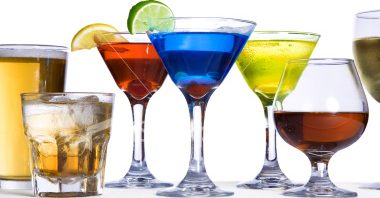Culture plays a role in the use of alcohol. Alcohol serves as a social lubricant, as it has across different cultures and time periods. Although alcohol appears as a common thread in the tapestry of varying societies, its expression may differ from place to place and time to time. This social practice has the profound ability to affect one’s health, either for the better or the worse. While some drink alcohol for its immediate effects, prolonged usage can affect the neurological wiring of the brain. The driving force for drinking changes, and metabolic processes can become affected. While genetic predispositions and personal behaviors certainly play a large role, the role of society and culture should not be ignored.
In class conversation, we discussed the role of alcohol in our own community. Fargo-Moorhead is a community that supports alcohol and enables those that are especially susceptible to alcoholism. As a college community, the bar industry definitely appeals to the college demographic. This community has specials unlike any community I have ever heard of. On any given night, one could find a bar selling drinks for $2.50 and much less. Friday nights at the Old Broadway: 2 hours of 10 ounce draft beers for the same cost in pennies as the date. Bucks and The Bar give away 40 and 48 ounces, respectively, of almost any beverage (beer, mixed drinks) for free, weekly during the month of one’s birth. Many bars have set up text clubs to inform their patrons when their specials are. Bars give away free shots at the door when special texts are shown, advertise trips to Vegas, 70” TVs, and other events to lure individuals to their establishment. Big D’s advertises 2-4-1 and for an extra dollar, a third drink. Mug nights, dollar-you-call-its, and the list goes on. Not only does our society support drinking, it supports binge drinking. With an age limit of 21, drinking in America has turned into something that is done irresponsibly in secret until they are legal and something one does in great excess once they become legal.

We also discussed countries where the legal drinking age was lower and alcohol was integrated into culture more than in the United States. In Italy, it is common to have an alcoholic beverage with dinner nightly. When used in moderation, such as in this instance, alcohol can actually be healthful for an individual, including reduced risks of coronary heart disease, type 2 diabetes, and some types of cancer. In Ireland, the institution of the pub is a pit-stop between home and work for many. This practice is somewhere between the Italian and American examples. While college American culture exhibits occasional to frequent binge drinking and Italian culture exhibits a single frequent, if not daily, drink, the Irish example appeared, to us, to be an example of frequent, if not daily, moderate drinking.

Even at the level of minimal drinking, the brain is affected. Receptors associated with reward are stimulated, so the individual feels the effects of ethanol to be positive ones. The body’s inhibition system is compromised, and the feeling can be quite liberating. Ethanol literally enables a different state of mind for those consuming alcoholic beverages. Prolonged use and abuse of alcohol, however, can damage the body. By stimulating the same parts of the brain with great repetition, one begins to develop a tolerance to ethanol. Higher levels are needed to attain the same level of reward in pleasure centers of the brain. Acetaldehyde, a product of breaking down ethanol for use by the body, alters the cell at the molecular level and can change which genes are turned “on” and “off” by transcription factors.
In addition to the problems alcoholism itself can cause, the number of diseases that exist in comorbidity with it is cause for great pause. Although used as self-medication by many, alcohol use can actually aggravate other mental health problems. Socialization and cultural norms are important in the decisions individuals make and the impact those decisions can have on one’s health. Alcohol is a drug that has the capacity to affect and change the way the mind and body function. When it comes to consuming alcohol, moderation is key, no matter what the cultural norm tells you.
More Than Just Social Drinking?

wonderful submit, very informative. I’m wondering why the other specialists of this sector don’t notice this.
You should continue your writing. I’m confident, you have a great readers’ base already!